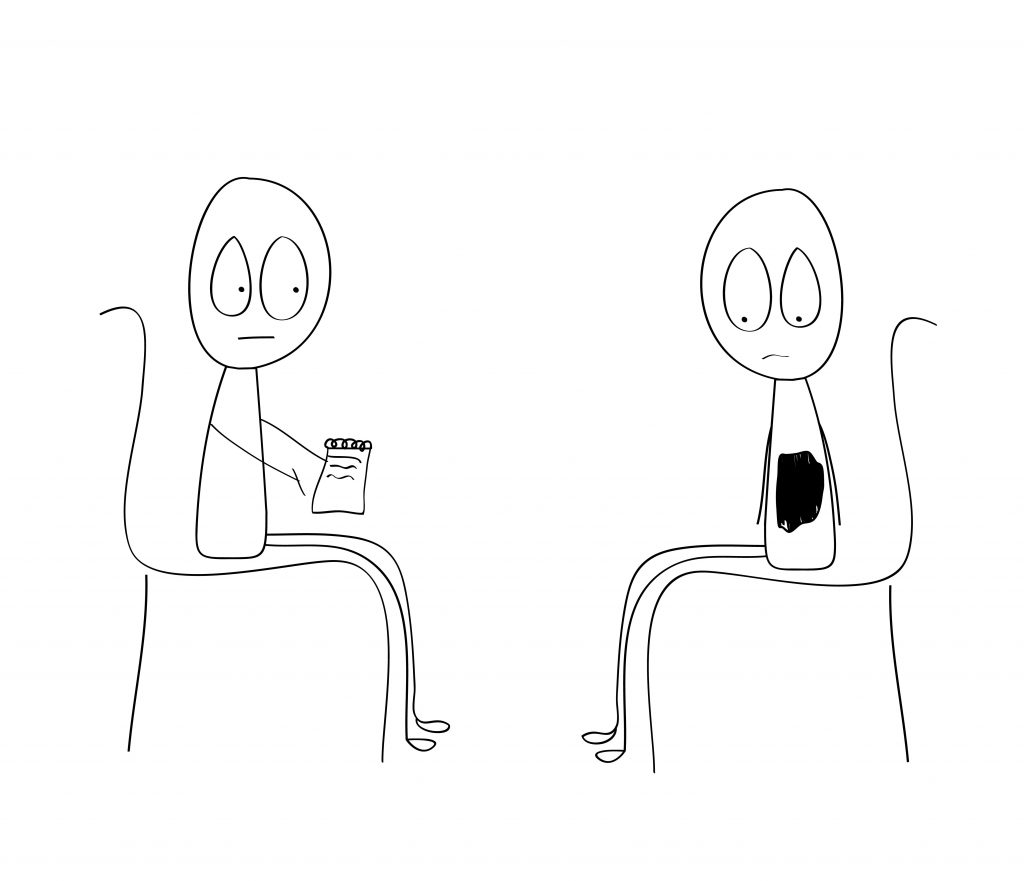
Emotion-Focused Therapy (EFT) is a form of therapy that seeks out to explore, understand and change problematic and painful emotions. The fundamental position in EFT is that it is our emotions that determine our well-being, how we think, how we understand ourselves and others, and how we behave in life.
A common understanding of psychic pain is that you feel the way you feel, because you think the way you think. From this perspective, change is about challenging our thoughts when we are in pain. In EFT we think a little different: What you feel is what you feel, and it is important for you to understand and express these feelings in order to deal with them and change them, if necessary.
EFT relies on a fundamental philosophical assumption that psychological problems arise when we lose touch with our basic feelings and needs. We humans are born with the ability to experience a huge range of emotions, like joy, sadness, anger, fear, pride, shame and love. Each of these feelings tells us something about what is important to us and what we need.
During the course of life, we learn how to relate to our feelings, both from our caregivers and from society at large. For example, some of us learn that anger is not okay, or that crying and being sad is unaccepted and weak.
For some, such experiences can make emotions difficult to master and rely on. Emotions can become chaotic, confusing and of little help in navigating everyday life. It can also contribute to a lot of psychological pain. We may feel that we lose touch with ourselves, feel shame for being the way we are, or that we lose direction and meaning in life. We may experience psychological symptoms such as anxiety, depression, intense worry, rumination, emptiness, excessive guilt or uncontrollable emotional outbursts.
Most of us carry with us such experiences, whether we have had parents with good intentions, or we have grown up in a context of criticism, bullying, neglect or trauma.
In EFT, we work to help client reconnect with vital emotions. It is about becoming more conscious of emotions, creating acceptance for them, understanding what they are signaling, being able to regulate them and learning to communicate them in an appropriate way. The EFT-therapist’s job is to help you get in touch with what is painful, understand how this affects you and how you can bring about other emotions that can be of help. This means that we spend a lot of time during sessions going into what is painful, in order to change it. There has been conducted a lot of research on EFT, suggesting it is a potent way to create emotional change.
If you want to read more about EFT or you are a clinician who wants training in EFT, please visit the web pages of the International Society for Emotion-Focused Therapy.
Om du vill läsa mer om EFT rekommenderar vi dig att läsa denna artikeln: Känslorna som kompass. Om du är kliniker och intresserad av utbildning i EFT så kan du besöka Svenska Institutet för Emotionsfokuserad Terapis hemsida eller International Society for Emotion Focused Therapy.
